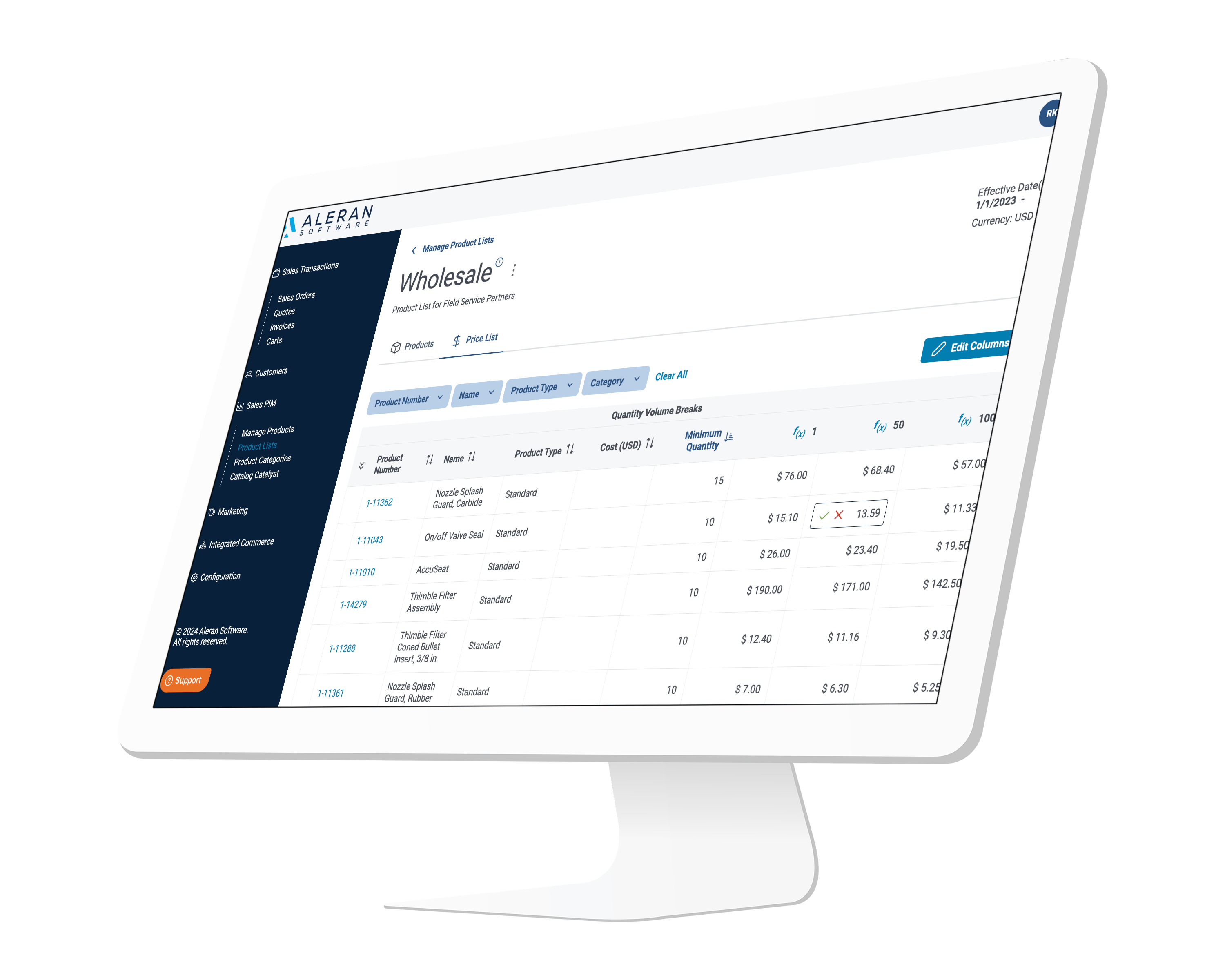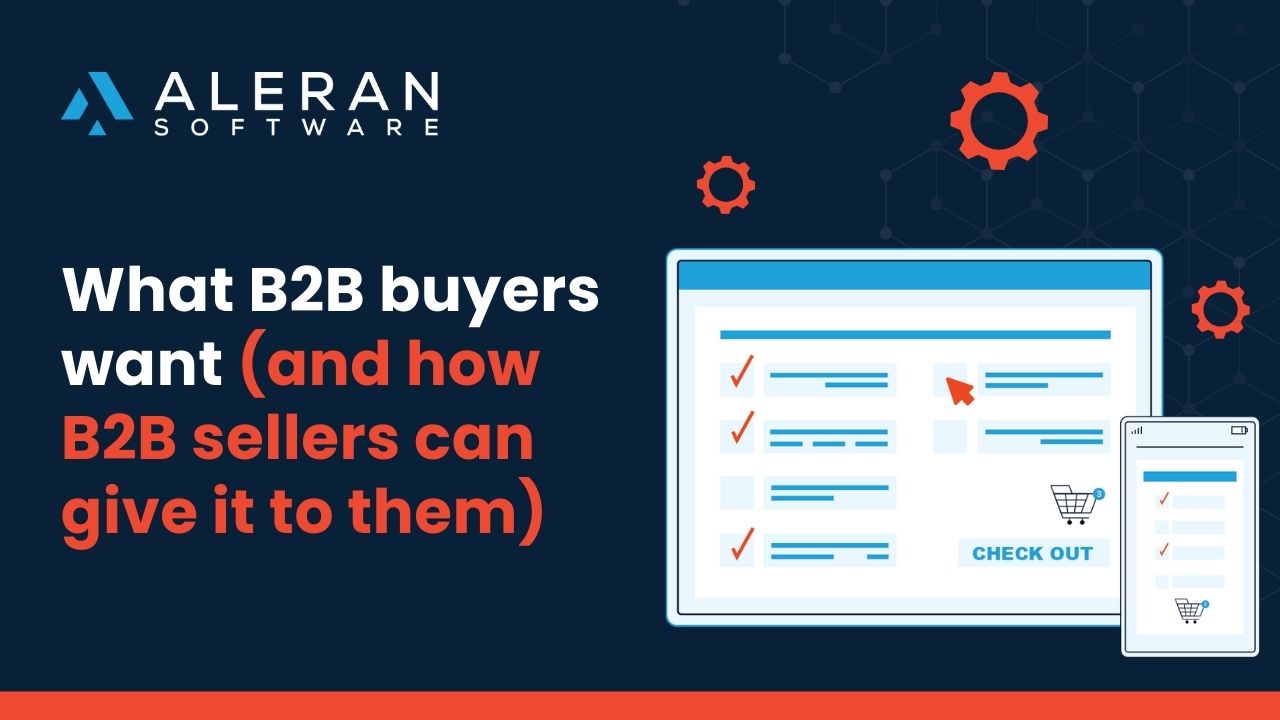I was recently a guest on the B2B Agility podcast with Greg Kihlstrom talking about the “amazonification” of B2B commerce. Our conversation was wide-ranging, but we generally explored some of the ways B2B companies are going to need to adopt B2C principles in e-commerce as more and more Gen Z and Millennial buyers push for a shift to seamless online purchasing, even for complex products. It’s an idea I also expanded upon in an article I wrote for Digital Commerce 360: How to get on board with the “Amazonification” of B2B selling.
But don’t just take it from me: recent data points illustrate perfectly why manufacturers need to care (and care now) about changing B2B buyer behavior.
B2B buyer behavior has already shifted to favor e-commerce above all else. Gartner reports that 65% of B2B buyers are researching online before a purchase. 86% of B2B buyers prefer to get a quote or place an order or reorder online over talking to a sales rep. This is also true for their very large orders. According to McKinsey, 69% of B2B buyers are now willing to spend more than $500k online as their comfort with remote spending has jumped.
So the numbers are presenting a pretty open-and-shut case for what B2B buyers want in their commerce transactions. But why are we seeing this shift to more seamless, consumer-like online experiences now? To me, it comes down to two things:
- Younger buyers. Forrester’s annual Buyers Journey survey found that 71% of B2B buyers are Millennials. This generational shift is absolutely significant when it comes to shifting buyer expectations. Millennials are native online shoppers. Not only are they comfortable researching and shopping online, it’s their absolute preference. And they want these transactions, even those happening in the workplace, to feel as easy, seamless and self-service as the transactions they have as consumers. Sales are emotional. At the end of the day, business-to-business is still business-to-people.
- The multichannel B2B competitive landscape demands it. We are hearing this from our customers in manufacturing all the time. They are seeing prospects come onto their site and when they don’t easily find what they’re looking for – leave. So now we have the manufacturers thinking about how they can best streamline their sites (and their SEO) for the kind of self-service, digital commerce they know their buyers are looking for.
Going the last mile in B2B eCommerce
I really care about salespeople. And as a company, Aleran’s remit has always been a bit different than other digital commerce platforms in the sense that we are built not only to help B2B manufacturers sell their products, but also to give them a platform that empowers their sales and marketing teams to work better, faster and smarter. That means minimal IT, quick to go live, and the proven ability to deliver their buyers the kind of seamless B2B digital commerce experiences they are insisting upon.
Though B2B buyers want their transactions to feel like B2C, these are two incredibly different beasts. B2B commerce is more complex. Buyers are flooded with content across channels. Manufacturers selling B2B must manage lengthy buyer journeys that can involve multiple stakeholders, extended sales cycles and highly configurable products and multi-tiered pricing.
And the reality is, for many manufacturers selling B2B, the majority of their sales interactions are already happening online. The problem is, and the part many manufacturers haven’t yet solved for, is that last mile – the actual transaction. They have a website. They have buyers researching online. They have catalogs that are PDFs. They’re sending information via email. But their product pages aren’t searchable or clickable. Engineer-to-Order manufacturers don’t have customized, customer-facing CPQ for their configurable products. And, as a result, they’re still largely transacting over the phone or in person.
To get manufacturers over this final part of the hurdle, they need a digital commerce platform that can do all the different things customers are demanding plus what they need to meet those expectations: personalized b2b e-commerce, self-service customer portals, automated configure, price, quoting (CPQ), shoppable catalogs, sales order management. And, finally, all of their systems need to be integrated quickly and easily, so they can speak to one another, without a heavy IT lift or huge cost outlay. That’s where integrating your commerce platform with payment, analytics, marketplace and other business-critical systems like your CRM, ERP and WMS is mission critical. Aleran offers a full suite of powerful APIs built on an open and serverless architecture to give manufacturers more control over their commerce solution, so they can actually automate processes, scale faster and streamline operations in real-time.
Bottom line: the clock has run out for manufacturers using legacy systems and processes. 2024 was a challenging year for manufacturers. Growth was fairly sluggish. But even amid ongoing economic and geopolitical instability, the industry is doubling down on e-commerce. Customers are only getting younger, more tech-savvy and less patient. And they all want satisfying user experiences or else. So it’s adapt or die. Adapt your sales channels, adapt how you market to your buyers, and start responding with an evolved digital commerce toolkit that uses technology effectively to meet the needs of today’s B2B buyers and can future-proof the sales success of your manufacturing organization over the long-term.
Alex Sayyah is CEO of Aleran Software. Follow Alex on Linkedin.Let’s Talk




